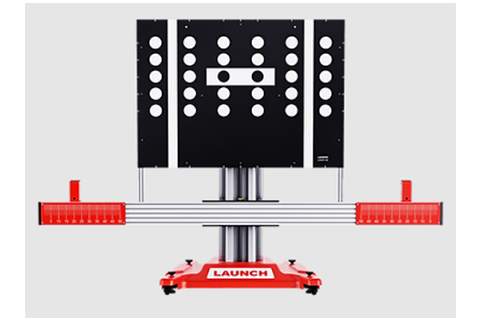Description
ADAS stands for Advanced Driver Assist Systems- These systems are designed to create a safer environment for the driver and those around him. These systems help reduce the possibility of an accident or collision. They have been around since the late 1990s but used in the early to mid 2000’s in the US with the use of Adaptive Cruise Control or ACC. These vehicles made use of LiDAR distance detection but only offered a warning to the driver. Those systems would be classified as a passive system. Today’s systems are more advanced and integrated. They use multiple sensor inputs such as cameras and radar to assist and warn the driver of the surrounding danger.
The increase in complexity has brought about a challenge in the auto industry. You can no longer perform basic procedures or replace components and not worry about it affecting these driver-assist systems. And if you happen to unplug or replace a component that is attached to these systems you will find that it will require a recalibration to clear a warning or check engine light. You can’t just clear the code. Here is a list of the most common procedure that require a recalibration:
- Windshield Replacement
- Alignment
- Front and rear bumper replacement
- Side view mirrors
- Rear trunk or tailgate
- Front or rear collision
FEATURES
- The modular structure and useful accessories enable you to configure the tool in the best way to suit your workshop.
- Easily and precisely adjust calibration frame to ensure the vehicle is correctly centered.
- Can be used even without an axial measuring system.
- Multiple calibration function, wide car model coverage.
- All kinds of vehicle-specific calibration panels are available.
- Provide the instruction before beginning a calibration procedure.
TYPES OF CALIBRATION
Dynamic vs static calibration- There are two types of recalibration that are performed for ADAS.
Static calibration – is a calibration that is performed in a controlled environment (Indoor shop with good lighting, level ground, and required space) with special targets placed in specific locations in front and around the vehicle. Also a scanner is required to communicate with the modules of that vehicle.
Dynamic calibration – also referred to as mobile calibration, is performed by driving your car for a prescribed distance, at a prescribed speed and in optimum weather conditions. A handheld device (scanner) that aids the process is attached to the car during the test. The purpose of this type of calibration is for the systems to get accustomed to the road so that they can be ready for all the functions they’re expected to perform.
VEHICLE COVERAGE
- America
- GM, Ford, Chrysler
- European
- Mercedes-Benz, BMW, Audi, Volkswagen,
- MINI, Jaguar, Volvo, Fiat, SEAT, Skoda, SMART,
- Renault, Land Rover, Opel, Citroen
- Asian
- Toyota, Lexus, Honda, Acura, Kia, Hyundai,
- Nissan, Infiniti, Subaru, Suzuki, Mitsubishi,
- Daihatsu
PRODUCT SPECIFICATIONS
Works with…
- X-431 Throttle
- X-431 Pad II AE
- X-431 Torque
PACKAGE CONTENTS
- X-431 ADAS Calibration Tool
- Calibration Frame
- Calibration Panel
- Wheel Clamps (x2)
- Radar Reflector
ADAS PACKAGE PRICING
- Basic – $9,995.00
- Standard – $14,495.99
- Deluxe – $19,995.99
- Premium – $33,995.99


